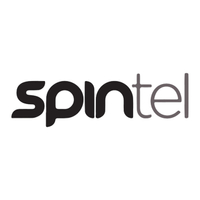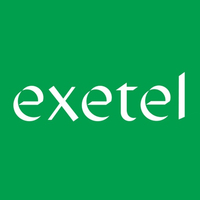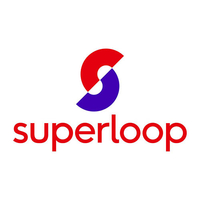NBN Co confirms 2Gbps 'Hyperfast' plans are coming – and many existing plans will see a big speed boost
There's never been a better time to upgrade your NBN plan

Following a tease announcement in May, NBN Co has confirmed it will be rolling out 2Gbps NBN plans from September 14, 2025 – and no doubt shaking up the list of the best NBN plans in the process. When the idea was floated earlier this year, it was believed the faster plans – to be known as ‘Hyperfast’ – might debut before the end of 2024 but that is seemingly no longer the case.
Naturally, the new multi-gigabit NBN plans will only be available to customers who connect to the NBN network via fibre to the premises (FTTP) or hybrid fibre coaxial (HFC) technology (as is the case with the current selection of NBN 250 and NBN 1000 plans) so if you’re on fledgling technology and have yet to take advantage of NBN Co’s free fibre upgrade program, now could be a perfect time.
At the same time, if you do connect via FTTP or HFC but are signed-up to a plan slower than 100Mbps, there is a very appealing reason as to why you should upgrade it.
(Much) faster speeds will usher in greater value
Alongside the introduction of the Hyperfast plans, NBN Co is also following through on its promise to drastically increase the maximum download speed of the best NBN 100 plans, best NBN 250 plans and best NBN 1000 plans.
100Mbps NBN plans will see the biggest boost in download speed to a maximum 500Mbps; 250Mbps plans will receive a three-times boost to 750Mbps and 1,000Mbps plans will be boosted to deliver 750Mbps at a minimum (an increase on the current 500Mbps).
Perhaps the best part is that these speeds will be delivered to customers currently signed up to one of the above plans – or who purchase one before the new plans are rolled out – automatically.
Pricing for this current trio of NBN plans shouldn’t increase too much either, as it’s been promised it won’t deter from the Special Access Undertaking (SAU). The SAU is a new piece of regulatory framework that was introduced towards the end of 2023 and which has been responsible for the fluctuation in plan prices throughout 2024. The purpose of the SAU was to make faster plans more affordable through the introduction of new wholesale pricing for internet service providers (ISPs) and to encourage Australians to sign-up to them – bolstered by the introduction of the free fibre upgrade program.
Get daily insight, inspiration and deals in your inbox
Sign up for breaking news, reviews, opinion, top tech deals, and more.
Since the SAU has been introduced, the average cost of the popular NBN 50 tier has increased by approximately AU$5/month, while the average cost of the fastest NBN 1000 plans has decreased by around AU$20/month. We’ve also monitored the ACCC’s quarterly broadband reports, which show how many active connections there are for each download rate. Despite a peculiar surge in the number of active NBN 50 connections in the final quarter of 2023, that figure has since been declining and there are now over 100,000 more plans with a download speed faster than 100Mbps, implying the seemingly more affordable nature of those plans is having a positive impact.
And that should continue, since the pricing of these plans will only increase inline with what has already been proposed in the SAU. For context, the current wholesale cost of a 100Mbps NBN plan is AU$60.22, while the average cost to consumers is AU$90.97. During the next financial year, the wholesale cost will increase to AU$61.93, so we don’t expect retail costs to increase too dramatically. And with the promise of five times faster download speeds at no extra cost, makes for incredible value.
The plans to get to set you up for future greatness
With the announcement that NBN Co will be increasing download speeds of NBN 100 plans to a maximum of 500Mbps for customers connected via FTTP or HFC technology, we feel inclined to recommend some of our current favourite 100Mbps plans, as we consider the forthcoming 500Mbps speeds to be plenty for most users.
If you’re not currently connected via FTTP or HFC, then rest assured the providers we’ve selected below all support the free fibre upgrade program. Do note that only customers currently connected via FTTC/N technology are eligible for the upgrade.
Spintel | 100Mbps | AU$65p/m (first 6 months, then AU$81.95p/m)
Spintel is our current pick as the best NBN 100 plan, so we had to include it here as well. Not only is it especially affordable, it's also among the cheapest to claim the maximum 100Mbps speeds during the busier evening hours. Cheaper providers don't match this claim, and considering there is just a few dollars difference, Spintel is worth signing up to.
• AU$65 minimum cost
• AU$881.70 first year cost
• AU$983.40 ongoing cost
Exetel | 100Mbps| AU$65.99p/m (first 6 months, then AU$84.99p/m)
Exetel recently took the top spot in the ACCC's download speed report , delivering 105.1% of advertised plan speeds (excluding underperforming services). The telco regularly features at the top of these quarterly reports, yet manages to be one the most affordable providers out there. Signing up to this plan right now also brings with it 5 free Speed Boost days which let you temporarily boost the speed of your service to the next tier – 250Mbps in this instance – for free. We can't guarantee the feature will remain when the speed increases arrive next year, but in the meantime it's a useful extra feature.
• AU$65.99 minimum cost
• AU$905.88 first year cost
• AU$1,1019.88 ongoing cost
Superloop | 98Mbps | AU$75p/m (first 6 months, then AU$89p/m)
Superloop is another top pick in our opinion, offering relatively low-cost plans across the board (its NBN 1000 plan is among the cheapest available and currently advertises 811Mbps speeds) and while the pricing here will no doubt eventually change when the new financial year rolls around, we'd expect it to still be one of the more affordable providers. The telco also performed well in the latest ACCC report, overdelivering on speed.
• AU$75 minimum cost
• AU$984 first year cost
• AU$1,068 ongoing yearly cost
You might also like...

Max is a senior staff writer for TechRadar who covers home entertainment and audio first, NBN second and virtually anything else that falls under the consumer electronics umbrella third. He's also a bit of an ecommerce fiend, particularly when it comes to finding the latest coupon codes for a variety of publication. He has written for TechRadar's sister publication What Hi-Fi? as well as Pocket-lint, and he's also a regular contributor to Australian Hi-Fi and Audio Esoterica. Max also dabbled in the men's lifestyle publication space, but is now firmly rooted in his first passion of technology.


